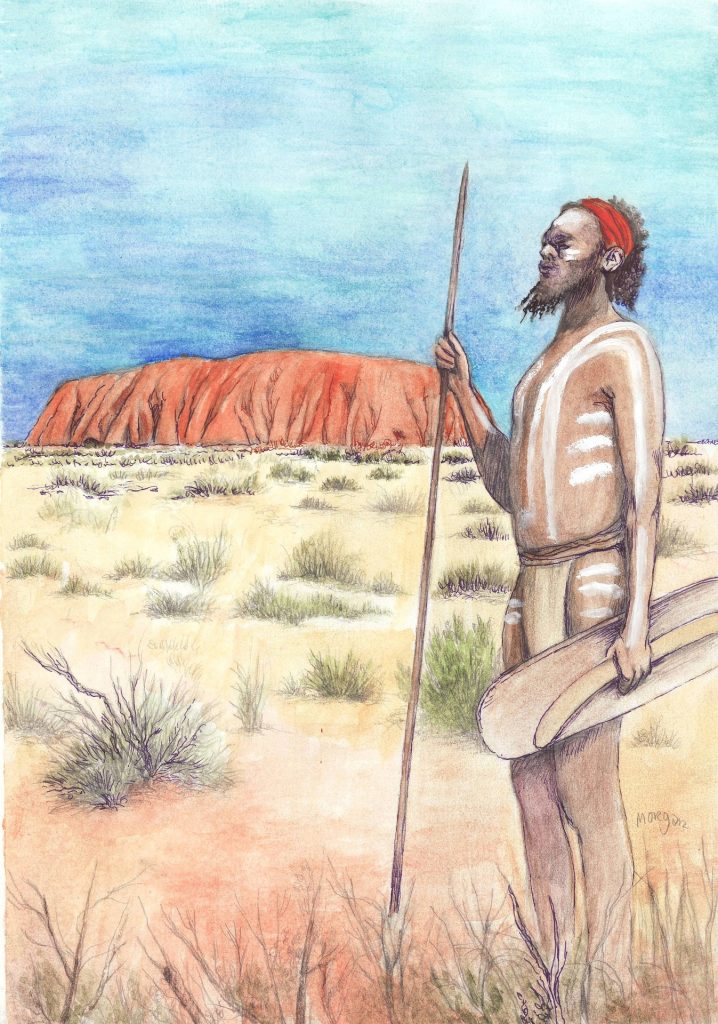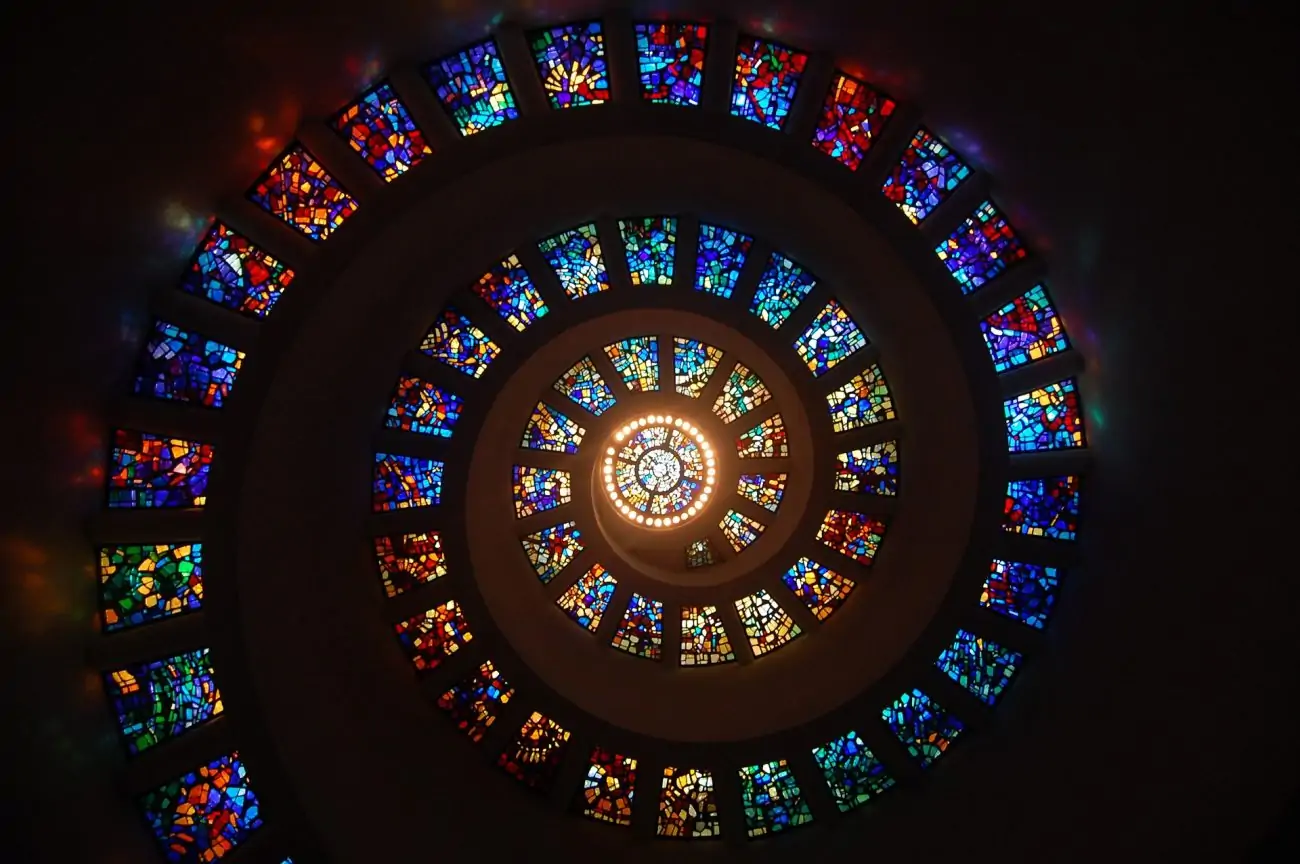Recently a book has become popular in the atheist community titled, ‘Why There is No God: Simple Responses to 20 Common Arguments for the Existence of God.’ This article will analyse the argument that religion developed from polytheism to monotheism over time, which forms a prominent part of the first chapter of this book.
Argument
The chapter begins by stating that religion was originally created by primitive man to explain natural phenomena, however, over time, as our knowledge of science developed, we gradually found ourselves without a need to explain these phenomena with made up gods. In other words, these gods were another way of saying ‘we don’t know’. These multiple gods then morphed into One God, with some people choosing to stick with the former. These unfortunate people were now worshipping imaginary beings.
Refutation
There are three distinct arguments here, each of which will be tackled in turn:
- That human beings invented gods to cover their ignorance, and worshipped that which they feared.
- That multiple gods eventually morphed into the belief of one God, and thus monotheism developed from polytheism.
- That belief in God has no evidentiary basis.
Worshipping our Fears
It’s a lovely little theory at first; scientifically illiterate human beings who couldn’t figure out why it rained or why their village was getting hit by tornados, had to come up with some plausible explanation. Thus, they invented gods to cover their own deficiencies in knowledge. Groups of cunning men turned these jumbled ideas into religions, with themselves as the clergy, seeking dominance in their superstitious societies. The idea dates back all the way to antiquity, finding mention in the works of Lucretius, before travelling in modern European thought through Thomas Hobbes, David Hume, the French Enlightenment Radicals, and now being repeated verbatim by atheists today.
Firstly, and most simply, it is worth noting that such argument is purely speculative, with little evidentiary basis. There is an argument made that there is now archaeological evidence (such as cave paintings) that support this theory. This is extremely tenuous. Human thought in the early period of mankind’s development is almost entirely unrecorded and obscure, and constitutes an unreliable database on which to draw. There is also a huge time gap between these early humans, tens of thousands of years ago, and organised religion of the last few thousand years. Thus, such ‘arguments’ involve projecting onto the minds of early ancestors the beliefs and wishes of atheist philosophers. The theory presupposes that there is no God – it does nothing to prove it.
That there is no evidence the theory is true does not necessarily make it false. To do so we must analyse it on its own grounds. The first question is: do we always worship what we don’t understand? Do modern day human beings understand dark matter? Not at all; yet we do not see the scientifically illiterate among us figuring out ways to worship it. Do we worship what we fear? This would be surprising. Ebola and AIDS do not find themselves with many devotees. Thus it should be clear that humans do not worship what they do not understand or what they fear. So why should we imagine that ancient civilisations did? Perhaps it can be argued that it is because we now rely on the scientific method; but this is to be historically naïve. The scientific method itself was refined in the Muslim and then Renaissance Christian civilisations. These were deeply theistic contexts.

Moreover numerous scientists in this age, and throughout the centuries, have believed in God. However their own faith does not cloud their scientific judgement. The beauty, complexity, and obvious appearance of design in nature led them to the inference that it was the work of a Higher Being. In fact, such thinking does not suppress scientific advancement, it spurs it on. Seeing design in nature drives scientists to find the purposes behind every aspect of nature, given that a Conscious, Intelligent Being created it.
Monotheism to Polytheism
What the Quran proposes is in fact the opposite to the argument at hand – that all religions really began with a Prophet establishing belief in One God, which then degenerated into polytheistic belief systems as time went on. The later, more spiritually wayward followers of these Prophets altered their understanding of God according to their defective knowledge. They split the Oneness of God into demi-gods, each embodying some of his functions. Thus polytheism does not coalesce into monotheism. Rather, monotheism degenerates into polytheism. According to Islam, when this happens, God sends a new Prophet with the same basic principles to reinstate the Unity of God, and do away with idolatry.
Is there any evidence for this theory? Yes – of every kind. A perfect example that is attested to by historical records, and the consensus of sociologists and anthropologists, is that of the Aborigines of Australia. These are tribes that were at a very low state of civilizational advancement. They should have acted as a perfect model to test the atheist supposition that primitive, unscientific people worship things they fear in nature. If the atheists are right, there should be no hint of monotheism about them, only superstitious polytheism. The anthropologists were given quite the shock.

Hazrat Mirza Tahir Ahmadrh, the fourth Caliph of the Ahmadiyya Muslim Community, who had met and talked with Aboriginals personally, describes the findings:
“In all the tribes of Australia, without exception, there exists a belief in one Supreme Power, who is the first cause of all creation. Their descriptions differ on minor points and their terminology varies slightly, but according to the consensus of the sociologists and anthropologists, they all invariably believe in the existence of that ultimate first cause called ‘High Gods’—another name for Allah, God, Brahmâ and Parmatama etc.
The central idea of one eternal Supreme Creator remains unadulterated by whatever other superstitions they may have entertained. The superstitions change from tribe to tribe, but not their belief in one God. Nowhere in Australia could the sociologists find any evidence of a gradual evolution of the idea of God. The views prevailing among the different tribes differ only in description.”
Thus, the experimental test-case of the Australian Aboriginals falsifies the atheistic position, and supports the Islamic position. We fully expect all atheists to hereby renounce their beliefs, now that the scientific data are in!
In case they wanted further confirmation, the retrospective test-cases of religious history is deeply instructive. Anyone who has properly studied polytheistic belief systems throughout the ages will be aware that many of them possess a concept of A Supreme God, under which other gods are subordinate. One example is that of Hindus believing in the Supreme God Brahman. This Supreme God is described as follows in the Bhagavad-Gita, the Song of the Lord;
“I am He by Whom the worlds were created and shall be dissolved… the Supreme Self, am the cause and upholder of all…. I am its Nourisher. I am the Knowable and the Pure …. I am the Goal, the Sustainer, the Lord, the Witness…and the Origin. I am Life and Death…the Unborn and the Omnipresent. The Source and Master of all beings, the Lord of Lords, the Ruler of the universe…”
It is entirely in keeping with the theory of monotheistic degeneration that Hinduism, the oldest religion, has the highest number of demi-gods. The more time a religious culture is given, the more its followers choose their favourite attributes of God, embody them in demi-gods, and worship them accordingly.
In fact, there is another religion of the not-so-distant past that works as a perfect example of how monotheism turns into polytheism. Christianity has clear monotheistic origins, and Jesus’ early followers were known to be essentially Jewish, believing in the unitarian concept of Yahweh. In The Old Testament we read in Deuteronomy 6:4:
“The Lord our God, The Lord is One”.
And Prophet Jesus, peace be upon him, stated that this was in fact the first of all commandments. In Mark 12:29 we read:
“And Jesus answered him. The first of all the commandments is, Hear O Israel; the Lord our God is one Lord…”
The idea of Trinity was given its basis by Paul, who was rejected by Jesus’ disciples as recorded in Acts. The idea of Jesus as Son of God only gained currency in Rome through Paul’s early followers, who founded the early Catholic Church. Trinity was officially codified only at The First Council of Nicaea in 325 CE (some 300 years after Jesus, peace be upon him, brought his monotheistic teachings). This is a clear example of how monotheism can transform into polytheism, well recorded in history. Other examples, such as Zoroastrian belief in One God fracturing into two over the centuries is another uncontroversial example.
We have seen therefore that the historical evidence favours the Islamic conception of the history of religion, rather than the atheistic conception. Of course, the question the Islamic narrative raises is this: where does the idea of One God come from? The answer is given by the Quran – through revelation to the Prophets of God, who appear among every people. The Quran itself gives many arguments for the Unity of God, which are beyond the scope of this article. However, stepping beyond academia and into the spiritual realm allows one to become cognisant of this fact on a personal basis.
Imagination vs Reality
The last tenet of the atheist argument is the assertion that God is simply imagined, and that religious people are deluded for believing in Him. However this discounts the many reasons for belief that the Prophets and their followers have put forward. The basis of belief for many in the time of the Prophets was their renowned reputation for honesty. An example of this is seen in the Emperor Heraclius. He asked an opponent of the Prophet Muhammadsa if he had ever lied. The opponent said no. Heraclius then answered, “He who does not lie about man will not lie about God.”
Then there are reasons to believe that are purely intellectual – belief in a designer and cause of the universe. With the company of the Prophet, these take on an even more solid basis. His followers see how he succeeds against all odds, and overcomes his enemies. They then see how the prophecies of the Prophet are fulfilled. Then, through spiritual effort, they have direct contact with God through revelation, and their faith is transformed into personal certainty.
We can also see evidence for God’s existence through the lens of history, by analysing the emergence and success of religions throughout human civilisation. One must remember that all major religions were founded by individuals who had little worldly power and prestige. What power they had, they renounced, and rallied against the establishment of their time. Their ideas went completely against popular opinion and required a complete change in the ways of the people to whom they came; all their history and cultural development had to change. They were opposed by the wealthiest and most powerful of individuals and nations. And yet, from that grew a tree that spread not only through the land but through time. Huge and successful nations in scientific, political and economic spheres sprung from these religious founders. Their followers take this as a sign of the help of God, and evidence for His Existence.
Whether one believes in this or not is irrelevant. What is needed is the humility of atheists to understand religious belief in its own grounds, and not to discount the opinions of believers throughout history when trying to understand the roots of religious belief. As the Quran describes:
“In the creation of the heavens and the earth and in the alternation of the night and the day there are indeed Signs for men of understanding;
Those who remember Allah while standing, sitting and lying on their sides, and ponder over the creation of the heavens and the earth. “Our Lord, Though hast not created this in vain; nay, Holy art though; save us then, from the punishment of the Fire.” (Quran 3:191-192)











2
1
5
3.5
Nice article
Really Alex? Let’s take your first point. Why does no one worship dark matter.
1. It has no physical manifestation in everyday life, so how many people know about it?
2. People who know about it are scientists! They are the ones who find God implausible!!
Please remove this article. It is infantile. Also, about AIDS and Ebola: chicken pox had a colloquial name in illiterate parts of a state in south Asia – ‘mata’. Which is a word used for goddesses. So yeah! People often worship what fear and don’t understand!
Name me any tribe which actually worshipped the aforementioned diseases. A simple linguistic term does not denote their undeniable devotion and worship of a Divine being
Your point about Dark Matter is irrelevant. First of all, it’s not something scientists are hiding in their back pocket, it’s well known to anyone with Google and 6 seconds of free time.
Alex you have just destroyed my faith in our educational institutions. The quality of reasoning in this article is so abysmal I cannot believe that it would have sustain an individual to progress to a formal accreditation, awarded in recognition of the capacity to possess and display a well-reasoned critical analysis.
Either that or you chose not to apply that ability out of fear for the consequences for inner security it may deliver.
Dear Warren
If the process is abysmal, it should be super easy to disprove.
Looking forward to your article with a well-reasoned critical analysis of the arguments raised in this article.
Always interesting to hear differing points of view.
Cheers.
4.5
Have you ever seen InspiringPhilosophy’s video on ancient monotheism? He’s a Christian YouTuber, but I think that some of his videos would be worth reacting to, especially the one on Ancient Monotheism.